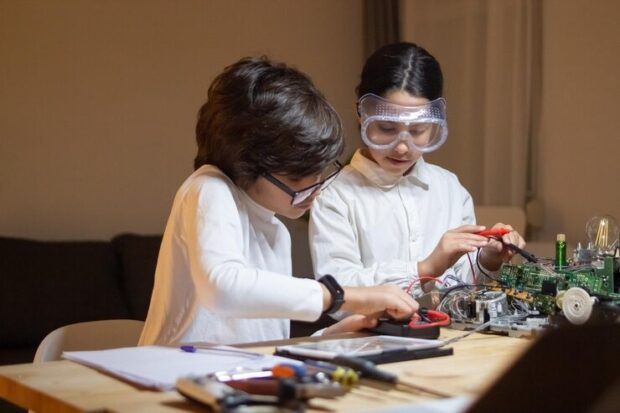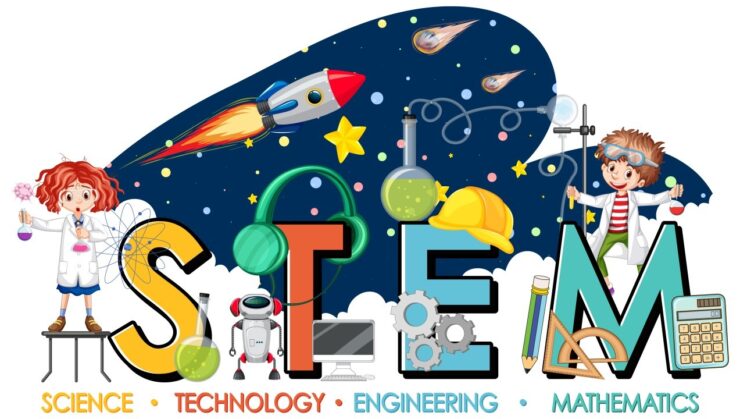STEM, which stands for science, technology, engineering, and math, is not just an essential part of the standard school curriculum. As many know, what happens after hours can also play a significant role in growing young minds, building up spirits and confidence, and encouraging a love of learning. STEM education in daycare can have a considerable impact in helping to set the stage for future success.
Fosters a Love of Learning
Learning is why children attend school, but kids should not feel like their education stops when the standard school day ends. STEM education in daycare continues the love of learning these essential subjects yet in a less formal manner. For example, there might be spur-of-the-moment cooking experiments or nature walks on a beautiful day.
Allows for More Creative Thinking

Creative thinking happens in many classrooms but also occurs in daycare involving STEM. For instance, children can play with blocks, answer open-ended nature questions, or gather certain random materials and decide what they could build from them.
These fun activities can have multiple benefits, including encouraging kids to find new ways to solve problems. It is also an excellent way for children to fully immerse themselves in the joys of STEM subjects without worrying about the following grade. They can discover that these areas – as demanding as they are in many ways – can be an entertaining way to destress.
As every adult knows, finding positive ways to destress from the pressures of life is essential for mental, emotional, and physical well-being. Kids finding their happiness activities at a young age can be fantastic as they age.
It Teaches Children the Art of Making Mistakes

STEM education in daycare gives children more freedom to make mistakes. While it may sound odd to encourage making missteps, that is how great things can come to be. For example, some people unintentionally invented trendy items.
There is also the benefit of letting kids know that it is okay not to be perfect and that they are more than the mistakes they make in their lives. The key is learning from these mistakes, determining what they did not do correctly, and understanding how they can do things differently next time. Imagine how that type of learning can impact their minds throughout their younger years and when they enter the working world.
They can also learn the power of resilience, which is, once again, something they will need at every stage and in every area of life. Think about what would have happened if Marie Curie had given up after the first experiment did not work how she hoped.
It Builds Critical Thinking Skills
Critical thinking is a huge part of STEM. It is one of the significant ways things get done. Kids can practice essential thinking skills in daycare in various ways, including getting handed open-ended questions and problems to solve.
It allows them to develop their curiosity and decision-making skills better. They can also use each STEM activity to formulate their own way of thinking, follow through on their opinions, and build confidence in themselves and their capabilities.
Builds an Early Introduction to STEM

Children will likely get some introduction to STEM from their parent(s) or guardians before (and after) they enter the school system, such as by using building blocks at home, learning about science through art, or going on hikes. However, STEM education in daycare offers additional ways to enjoy subjects outside the standard school curriculum. It shows children multiple ways to appreciate their favorite STEM subjects and activities in addition to home and school methods.
Encourages Collaboration
Many STEM jobs require collaboration, whether with one other person or an entire group of people throughout multiple companies. STEM education in daycare gives kids more freedom to collaborate, such as using oversized blocks to construct different structures they can sit in or using popsicle sticks to make miniature houses or bridges. It teaches them not only how to work together but also to do so effectively.
An incredible number of advances in this world would not have transpired if it were not for children at some point discovering how much they love one or more areas of STEM. Learning more about these subjects in daycare benefits kids (and their parents!) as they continue to grow, learn more about themselves, and develop their own definition of what success means for them.
Sandra Chiu works as Director at LadyBug & Friends Daycare and Preschool.




























